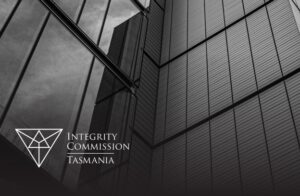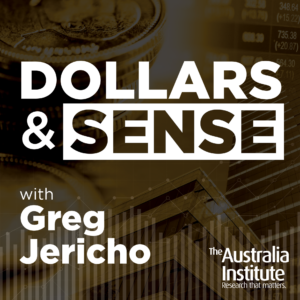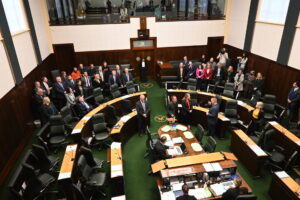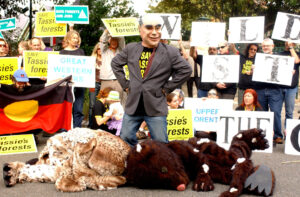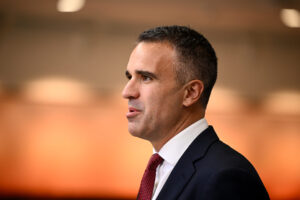August 2025
Tasmanians are still in the dark about what is being done to prevent the Maugean skate’s extinction
Latest decision on salmon farming almost certain to be catastrophic for endangered species, writes Eloise Carr
EXPLAINER: What are personal staff, and why do they have Clive Palmer contemplating another political campaign?
Clive Palmer, the billionaire coal miner who funded the Palmer United Party, United Australia Party and Trumpet of Patriots, is considering another political run.
How political pragmatism is killing us with Richard Denniss
The search for the “sensible centre” in Australia politics is pointless and flies in the face of evidence, says Richard Denniss.
Give free rein to our worst instincts and we all risk sinking
Most children with Eastern European relatives will learn this lesson young; a scorpion wants to cross a river but it can not swim. It sees a frog about to get into the river and pleads with it for a ride.
Paid to pollute – new analysis reveals how big polluters are making a mockery of Australia’s key climate policy
New analysis by The Australia Institute reveals how the nation’s biggest polluters are making a mockery of Australia’s key climate policy, the safeguard mechanism.
The Safeguard Mechanism’s pro-fossil flaws – explained
Governments work hard to ensure that Australian climate policy seems effective to media and voters, while simultaneously ensuring it does nothing to limit the key thing that is wrecking the climate – fossil fuel expansion.
Woodside’s Science Week sponsorship risks undermining WA Museum’s scientific integrity
The Western Australian Museum’s decision to allow Woodside Energy’s sponsorship of Science Week risks undermining the museum’s scientific integrity.
Underfunded, toothless and lacking transparency – time for a new era of integrity in Tasmania
As Tasmania’s newly elected politicians jostle to form government, new analysis from The Australia Institute shows that a deal to address integrity would be popular among election-weary voters.
Will Trump run again?
“Probably not…”
The problem with productivity
We discuss the proposals around corporate tax and artificial intelligence ahead of the government’s productivity roundtable.
Australians march for Palestine as Trump shoots the messenger
On this special crossover episode of Follow the Money and After America, Dr Emma Shortis joins Glenn Connley to discuss the Australian protests calling for more action to protect Palestinians, the momentum against the troubled AUKUS submarine pact, and Trump’s decision to fire his chief of labour statistics after job growth slowed. This discussion was
Australians march for Palestine as Trump shoots the messenger
From Gaza to AUKUS, pressure for change is building on Australian foreign policy.
Landslide Labor win out of proportion to primary vote
Labor won nearly two-thirds of all the seats in the House of Representatives with just over a third of first preferences.
‘Right moment’? Australia risks losing power and respect on Gaza
There used to be a myth that News Corp could make or break governments.
This carbon policy has been a spectacular failure. Let’s put this zombie in the ground for good
Like a reanimated corpse from The Walking Dead, carbon capture and storage (CCS) is the boondoggle “technology” that just wont die. As a way for governments to piss public money up the wall, CCS is incredibly effective. On almost every other front, it’s a spectacular failure.
It will take more than process to win crossbench support to govern
It’s pleasing to see a real competition emerging for government in Tasmania the state election a fortnight ago. The Labor Party is finally off the bench and in the game – making a play for crossbench support to form government after refusing the last two opportunities to do so. So far, negotiations are focusing on
July 2025
Australia has a politician problem: not too many, but too few.
Each of Australia’s 150 members of Parliament (MPs) must split their attention between more constituents than ever before: 120,659 voters per MP, over six thousand more than in 2022.
Australians want to kick political parties out of postal voting – poll
Australians overwhelmingly want to keep political parties out of the postal voting process, according to new polling conducted for The Australia Institute.
Are the Democrats an unworkable coalition?
By courting neo-cons and failing to address cost of living concerns, have establishment Democrats signed the party’s death warrant?
The disempowerment of the ‘consumer’ in public services
We are all consumers. Every one of us.
Australians aren’t afraid of power-sharing parliaments
Tasmanians have returned another power-sharing parliament – it’s now up to the major parties to make it work.
Oil and gas export rip-off gets worse as Australian governments hand back royalties to Big Gas
Reporting in Boiling Cold confirms the Australian and Western Australian governments will hand back almost half of the royalties collected from the Chevron-operated Barrow Island joint venture oil facility in WA. The deal between Chevron and the Australian and WA governments means taxpayers will pay Chevron and its joint venture partners, Santos and Exxon, at least $500 million.
WA and federal governments allowing Woodside to export large amounts of WA’s domestic gas reserves
Reporting today confirms large quantities of Western Australia’s domestic gas reserves are being exported via Woodside’s North West Shelf project, and the federal and Western Australian governments are letting it happen.
Election result shows Tasmanians want a power-sharing government
This weekend saw Tasmania’s second election in just over a year, and the result means whoever forms government will need to work with the Greens or Independents if they want to govern.
Just 3% of Australians support the sale of Santos to foreign investors
New polling, commissioned by The Australia Institute, reveals just 3% of Australians want the federal government to approve the sale of Australian-based oil and gas company, Santos, to foreign investors.
South Australia’s leap into the unknown with political finance changes
July 1 marked a dramatic change in how political parties and candidates are funded in South Australia.
Tasmanians want a power-sharing government: poll
More Tasmanians agree than disagree that the major parties should seek to form government with Greens and Independents if they cannot form government in their own right, according to new polling commissioned by The Australia Institute.
A matter of preference
Labor won big and the Coalition got “smashed”, but the major parties have never been more reliant on preferences.
June 2025
Anthony Albanese can restrict gas exports and save the Tomago aluminium smelter
Taxpayers are being asked to hand over billions to multinational mining giant Rio Tinto to help keep its Tomago aluminium smelter open – again.
General Enquiries
Emily Bird Office Manager
mail@australiainstitute.org.au
Media Enquiries
Glenn Connley Senior Media Advisor
glenn.connley@australiainstitute.org.au







